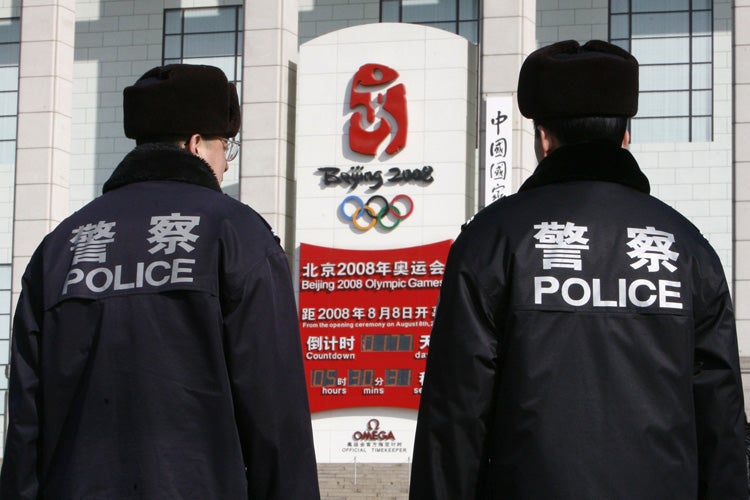Steven who? China shrugs off Spielberg's stand

We regret Steven Spielberg's decision but we don't need him to stage an excellent Olympics, was China's defiant response to the film-maker's resignation as artistic director of the Beijing Olympics this summer.
In line with previous comments about human rights defenders trying to tie political issues to the greatest sporting show on Earth, Beijing officials blamed activists with unspecified "ulterior motives" for trying to spoil the Games.
The tone of the Chinese response is best described as a combination of defiance, nationalistic resolve and a feeling of being hard done by. "It is understandable if some people do not understand the Chinese government policy on Darfur. But I am afraid that some people may have ulterior motives, and this we cannot accept," said Liu Jianchao, aForeign Ministry spokesman.
He emphasised China's concern about the humanitarian crisis in Darfur but insisted China had been playing a constructive role in promoting peace there.
Spielberg's decision to quit as spectacle adviser is the first real test of how China plans to defend itself against critics who say it is using the Games as a propaganda exercise. Rights activists are keen to highlight government curbs on human rights, press freedoms and religion, as well as policies in regions such as Tibet and Xinjiang. Beijing is sticking to the agreed text on the Olympic spirit. "Linking the Darfur issue to the Olympic Games will not help to resolve this issue and is not in line with the Olympic spirit that separates sports from politics," China's Olympic organising committee (BOCOG) said.
"The Chinese government has made unremitting efforts to resolve the Darfur issue, an obvious fact to the international community which holds unprejudiced opinions on this issue."
The news has not been widely reported in China but it has prompted a reaction among bloggers. One described Spielberg as a volunteer salesman working without a salary, peddling the American Dream by making blockbusters. "Maybe without his help we can show during the Olympics the more traditional side of our culture. Farewell, Mr Spielberg! Maybe the people of Iraq need you more than us."
Another blogger took a similarly nationalistic tone. "It's the Chinese people's own business," said Li Li on the Sohu website. "Aren't there a lot of famous Chinese directors, such as Zhang Yimou? Why do we have to turn to foreigners when we are able to do things by ourselves? I don't understand."
Spielberg's decision to quit, made on the grounds that China wasn't doing enough to pressure Sudan over the conflict in its western region of Darfur, comes as tensions between Beijing and Washington were heightened by a spying row. Beijing's spokesman again referred to "ulterior motives" and accused Washington of "Cold War thinking". "The so-called accusation against China on the issue of espionage is totally groundless and has ulterior motives," said Mr Liu.
It's hard to overstate the importance of the Olympics in China – there has been a huge outpouring of national pride that Beijing will host the Games and a feeling that China is finally taking to the world stage. Human rights are not a big issue in general in China.
But not everyone bows to the wave of good feeling about the Olympics. Many dissidents have spoken out against the way the Olympics are being used as a propaganda platform by the Communist Party.
Dissenting voices such as the rights activist Hu Jia have been silenced ahead of the Games. Some people still dare to speak out against the Games, including those who have been involved in organising them.
The artist Ai Weiwei helped the architects Herzog & de Meuron design the 100,000-seater Olympic Stadium, an intricate structure with a lattice-work of intersecting steel. He has said the Games were being used as propaganda by the state. "The Games are a propaganda show, a giant masked ball. The outcome will be endless nonsense and boredom," Mr Ai told the German news magazine Der Spiegel.
"The government wants to use these Games to celebrate itself and its policy of opening up China. But there isn't anything to celebrate. Now the system that caused these problems in the first place is struggling to remain in power. And who pays the price? Every individual in this society."
Join our commenting forum
Join thought-provoking conversations, follow other Independent readers and see their replies
Comments
Bookmark popover
Removed from bookmarks